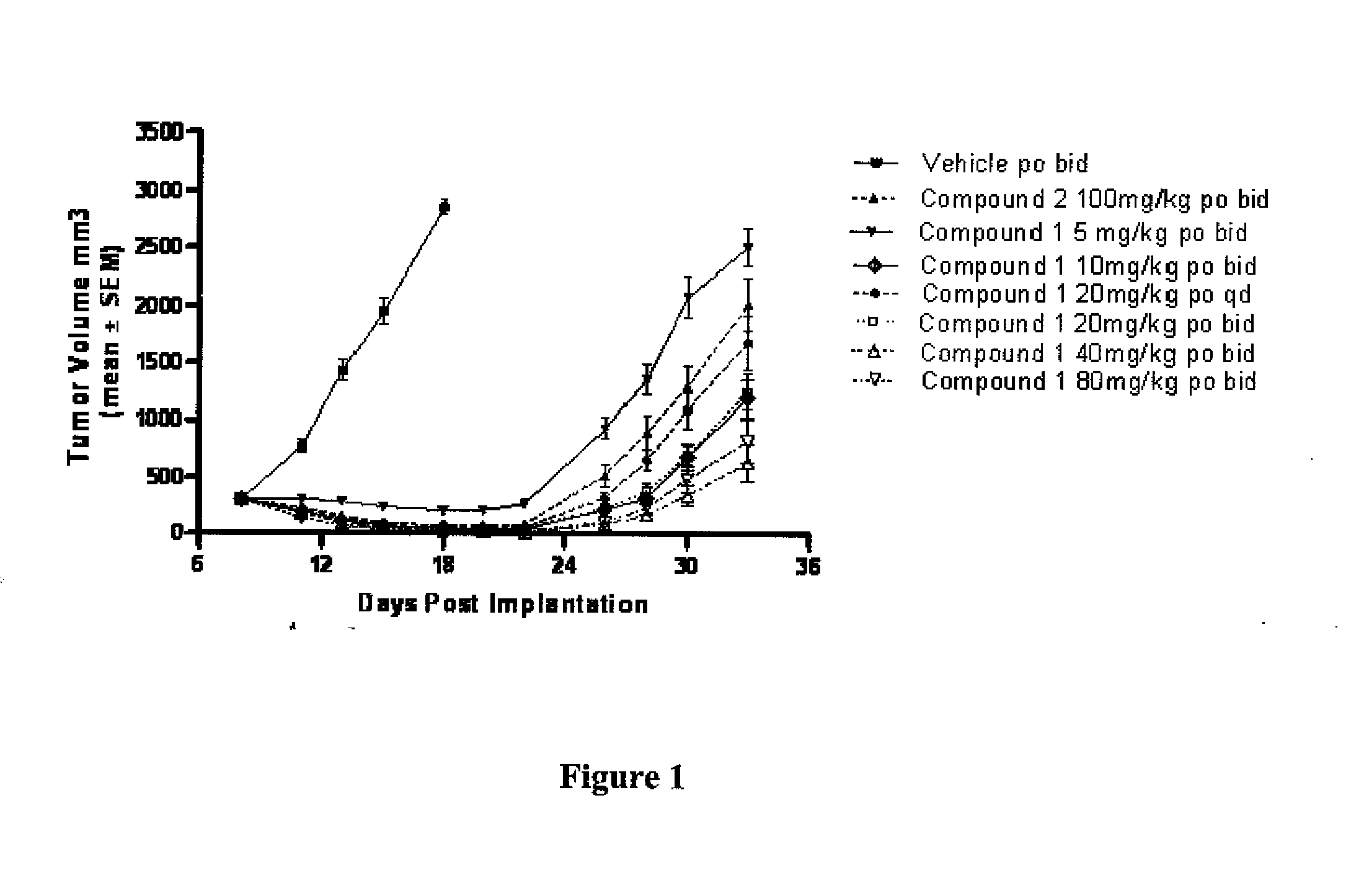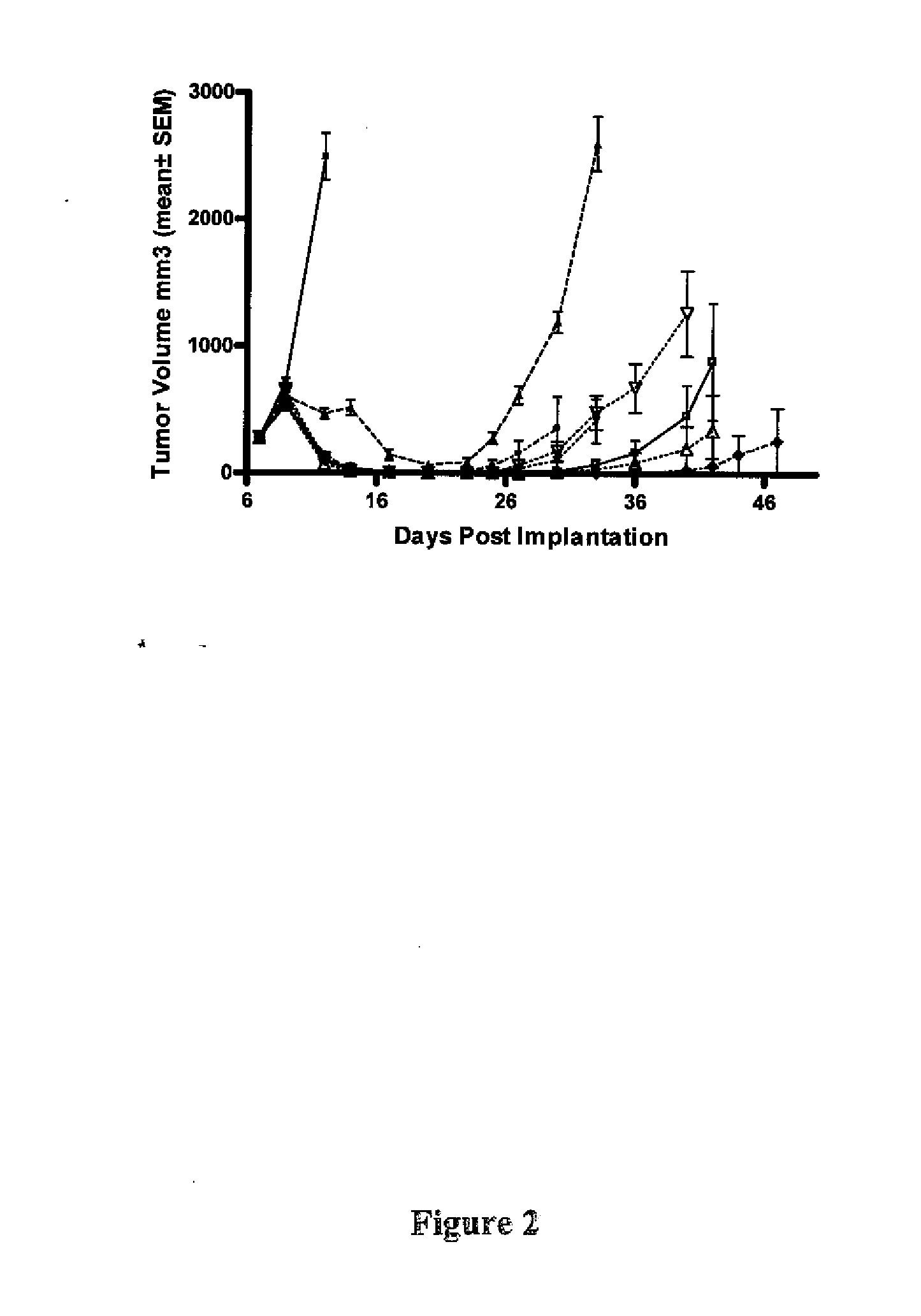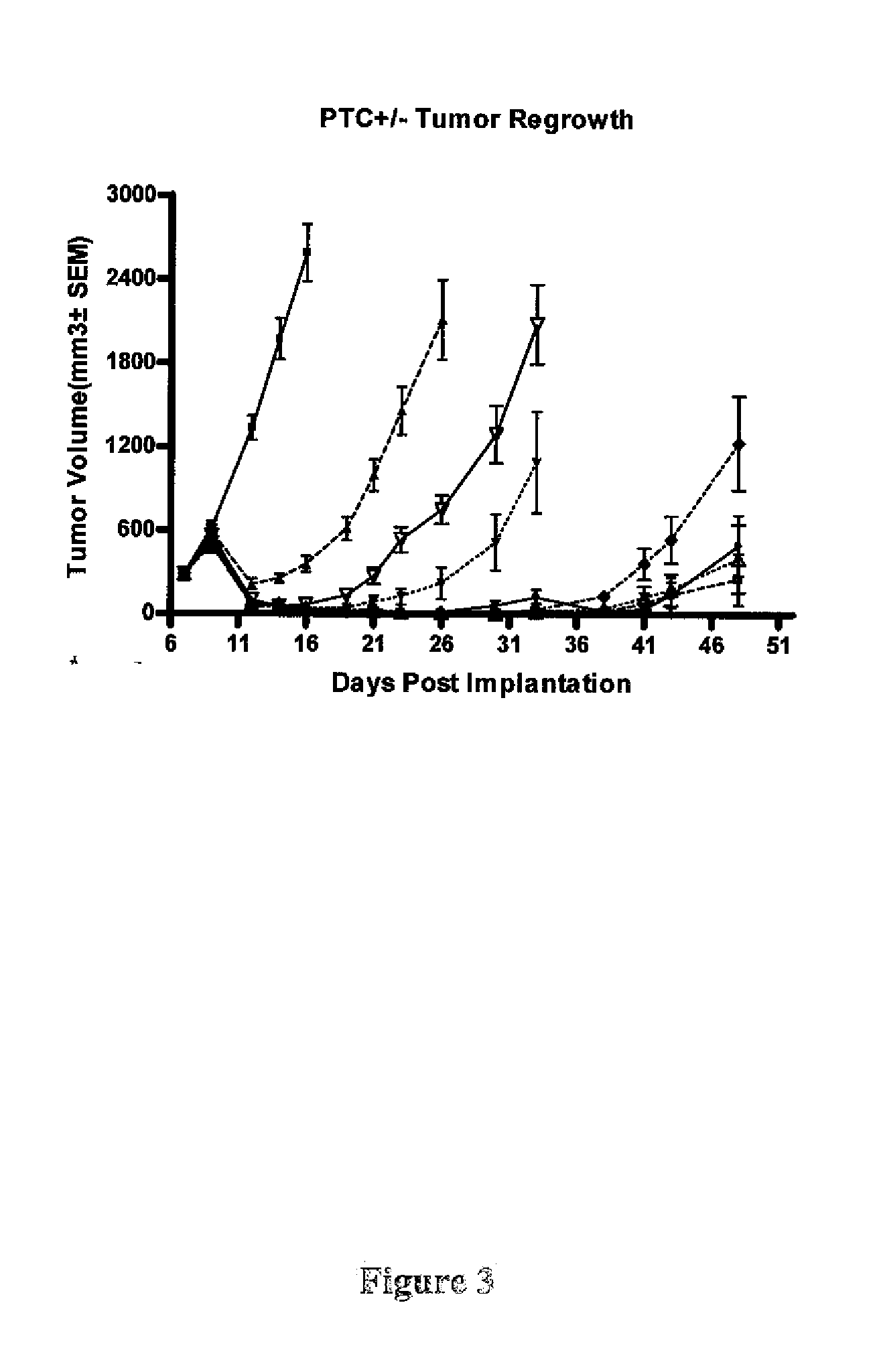Smoothened antagonism for the treatment of hedgehog pathway-related disorders
a hedgehog and pathology technology, applied in the field of smoothened antagonism for the treatment of hedgehog pathology, can solve the problems of pathological consequences and the active activity of the hedgehog signaling pathway, and achieve the effects of preventing and/or treating cellular derangements, preventing and/or treating cellular debilitations, and/or dysfunctions
- Summary
- Abstract
- Description
- Claims
- Application Information
AI Technical Summary
Benefits of technology
Problems solved by technology
Method used
Image
Examples
example 1
Drug Resistance Observed in Ptch+ / − Models
[0414]Ptch+ / − mice develop medulloblastoma spontaneously (Romer, et al 2004). The tumors, which have been previously shown to be Smo-dependent, are used as models to test compounds which inhibit the Hh pathway. The loss of p53 results in an earlier onset and increases the incidence rate of medulloblastomas, where 95% of Ptch+ / −p53− / − mice develop medulloblastoma and most die from brain tumors within 12 weeks of birth (Wetmore, Eberhart and Curran 2001, Romer, et al 2004). Ptch+ / −Hic+ / − mice also form medulloblastomas with increased penetrance and decreased latency (Briggs et al., 2008) Smo inhibitors have been shown to effectively decrease the incidence of medulloblastoma in Ptch+ / −p53− / − mice, both directly in the transgenic model (Romer, et al 2004) and in allograft models derived from the Ptch+ / −p53− / − medulloblastoma tumors (Berman, et al. 2002).
[0415]Therefore the in vivo efficacy of Compound 1 was evaluated in Ptch+ / −p53− / −, Ptch+ / −Hic...
example 1a
Treatment in the Ptch+ / −p53+ / − Medulloblastoma Allograft Model
[0416]Treatment in the Ptch+ / −p53+ / − model occurred as follows: Treatments started on day 8 post implantation (5 million cells / animal). Compound 1 was administered po (i.e., orally) at 5 mg / kg bid (i.e., twice a day), 10 mg / kg bid, 20 mg / kg qd (i.e., once a day), 20 mg / kg bid, 40 mg / kg bid and 80 mg / kg bid for 25 days total. Compound 2 was administered at 100 mg / kg bid for 25 days. Vehicle control of Compound 1 was 0.5% methylcellulose 0.5% Tween 80 in water. The initial group size consisted of 8 animals. The vehicle group was taken down 10 days after treatment (tumors greater than 10% of mouse body weight). Animals were dosed continuously for a total of 26 days treatment.
[0417]Following said continuous dosing for 26 days (FIG. 1), tumor regression was observed during the first half of the dosing period. Afterwards, however, tumors regrew even though dosing was continued. Likewise, Compound 2 dosed at 100 mg / kg bid also i...
example 1b
Treatment in the Ptch+ / −Hic+ / − Medulloblastoma Allograft Model
[0418]In a follow up study in the Ptch+ / −Hic+ / − model, the results of which are shown in FIG. 2, treatment occurred as follows:
[0419]Treatments started on day 7 post implantation (5 million cells / animal). Compound 1 was administered po at 5 mg / kg bid, 10 mg / kg bid, 20 mg / kg qd, 20 mg / kg bid, 40 mg / kg bid and 80 mg / kg bid for the length of study. Compound 2 was administered at 100 mg / kg bid for the length of study. Vehicle control of Compound 1 was 0.5% methylcellulose 0.5% Tween 80 in water. The initial group size consisted of 8 animals. The vehicle group was taken down 10 days after treatment (tumors greater than 10% of mouse body weight).
[0420]In the Ptch+ / −Hic+ / − model, some but not all of the tumors showed evidence of regrowth following the initial regression. However sustained complete regressions were observed in a subset of animals (see Table 1). Sustained complete responses appeared to be more frequent at higher d...
PUM
| Property | Measurement | Unit |
|---|---|---|
| molecular weight | aaaaa | aaaaa |
| molecular weight | aaaaa | aaaaa |
| volumes | aaaaa | aaaaa |
Abstract
Description
Claims
Application Information
 Login to View More
Login to View More - R&D
- Intellectual Property
- Life Sciences
- Materials
- Tech Scout
- Unparalleled Data Quality
- Higher Quality Content
- 60% Fewer Hallucinations
Browse by: Latest US Patents, China's latest patents, Technical Efficacy Thesaurus, Application Domain, Technology Topic, Popular Technical Reports.
© 2025 PatSnap. All rights reserved.Legal|Privacy policy|Modern Slavery Act Transparency Statement|Sitemap|About US| Contact US: help@patsnap.com



